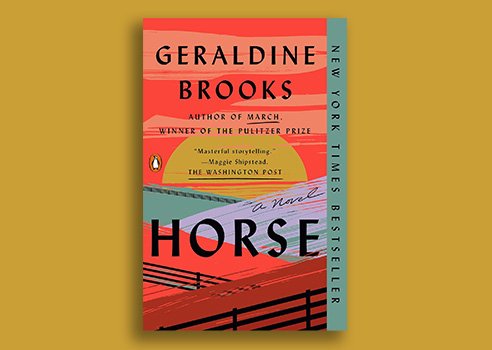Reading time: About 1 minute
I like to share interesting pieces of figurative language I encounter in my reading. I write today about some similes and metaphors from Australian writer Geraldine Brooks….
Geraldine Brooks is an author and journalist who grew up in Australia but who now lives in the US. She was awarded the Pulitzer Prize in fiction in 2006 for her remarkable novel March — a re-envisioning of Louisa May Alcott’s classic novel Little Women. In Brooks’s inventive book, the focus is on the absent John March — father to Meg, Jo, Beth and Amy — who has gone off to fight in the American civil war.
Books’s most recent novel Horse, spans generations — combining the story of the thoroughbred racing horse from the mid-1800s and his Black groom and the contemporary story of Smithsonian scientist and an art historian. While I found the writing to be slightly inferior to Brooks’s other novels, she still used enough figurative language to keep me interested.
Here are my favourite examples:
- Theo pressed the delete key and watched the letters march backward to oblivion. All that was left was the blinking cursor, tapping like an impatient finger.
- Generally, Jess’s mother was the kind of parent who would let her daughter set the house on fire if she thought it could teach something about carbon and oxygen.
- She hadn’t meant to stay in America. But careers can be as accidental as car wrecks.
- As she watched, a crimson sunrise gashed the purple cumulous clouds, like slashes in an Elizabethan sleeve.
- Hoodies up, heads bent, they passed on another in silence, like monks on their way to matins.
- Ten Broeck’s town house was a handsome structure of claret-colored brick with three tall, shuttered doors opening onto a narrow verandah trimmed with iron lace.
- In the morning, the sun rose pale as a pearl.
- But now [the horse] moved into his characteristic low running posture as if he were made of silken fabric, not flesh and bone.


